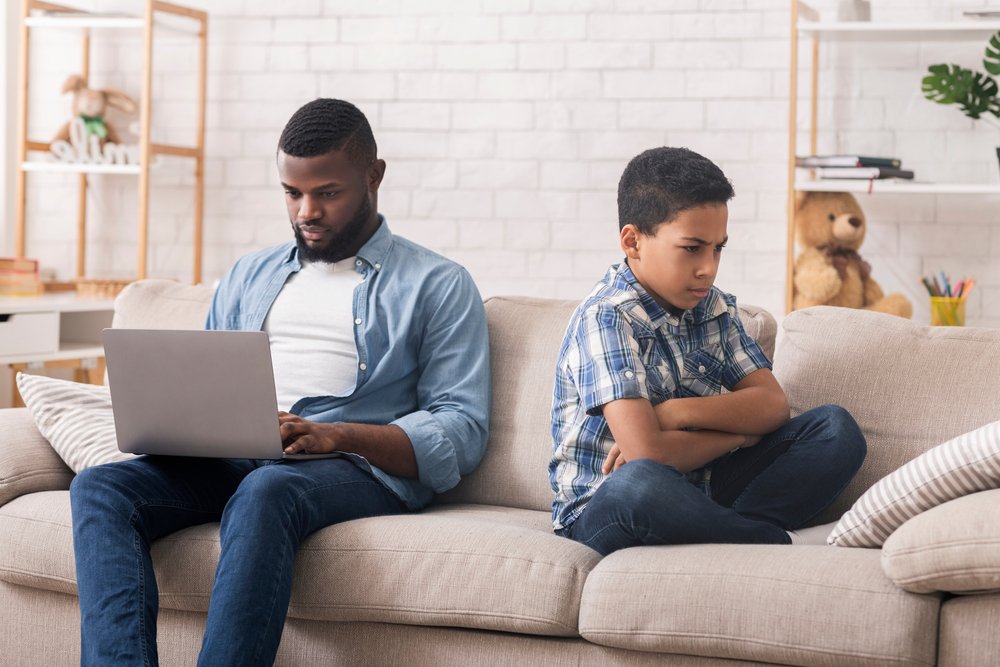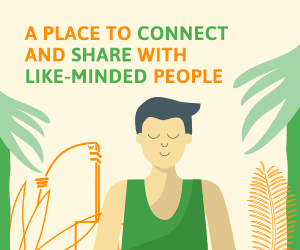Mindful parenting is a tool to help you clear your mind and open your heart, says meditation and mindfulness teacher Ann Vrlak. Discover how to reconnect with yourself and your intentions as a parent by following her tips.
You’re making dinner. Your two school-aged children are fighting, the dog just padded through the kitchen with muddy paws, your partner called to say they’ll be late and your teenager is tuning you all out watching something on their iPad. Just another family meal!
However, this kind of stressful scenario is many parents’ “normal.” It’s why mindful parenting is very much on many parents’ minds, and even more so during a global pandemic where families are facing unprecedented stresses and uncertainty.
Indeed, many parents want to know how mindfulness can help them reduce their own stress, be the good parents they most want to be, and model healthy coping skills for their kids.
What is mindfulness?
Let’s start with a quick look at two definitions of mindfulness:
- Paying attention to the present moment with kindness and curiosity.
- Non-judgemental awareness of your moment-to-moment experience.
In its essence, mindfulness is taking a deep pause. Sometimes there isn’t a lot of space between our feelings and thoughts about a situation, and our reactions to it. We literally react without thinking, usually in a habitual way, sometimes making stressful situations worse for ourselves and our loved ones.
Mindfulness is a mini reset that lets you see a situation with fresh eyes. To see things as they are with a little less baggage about the past, or worries or hopes about the future.
Take a pause for mindful parenting
As a parent, mindfulness is a tool to clear your mind and open your heart, to reconnect with your deepest intentions for yourself as a parent. And, at the same time, your mindful parenting shows your child how to better handle their own anxiety.
So, you don’t need to understand any philosophy or complicated practices to try mindful parenting. But I wouldn’t be telling you the whole story if I said it’s always easy.
What is mindful parenting and how do I do it?
Close your eyes for a few seconds. Slow down a bit and pay attention to what is happening in this moment, with kindness and curiosity. Take a few deep breaths, noticing the sensations in your body as you do, letting your thoughts and feelings flow by for just a moment. Not so hard, right? Kind of relaxing.
• JOIN US! Sign up to learn more about meditation and mindfulness •
Now try it again, picturing the dinner scene at the start of this article. A little harder, right? Maybe a little less kind and non-judgemental? Mindful parenting is meant to help us all be more present and resourceful with exactly these busy, stressful realities of life. There are essentially two ways to practice mindfulness:
- Taking a few quiet minutes away from your daily activities.
- Inserting small moments of mindfulness in the midst of family life.
Both are beneficial and, no matter which you choose, mindful parenting looks like this:
- Create a pause.
- Come into the present.
- Notice with kindness and non-judgement what is happening.
- Choose your behavior.
Mindful parenting exercise
So, the next time you’re feeling stressed, try this mindful parenting exercise. And the next time after that.
-
Create a pause.
-
Break into the stress cycle of tension, thoughts, emotions and reactions with a pause.
-
Do something to ground in and soothe your body, like taking two deep breaths. Feel the rising and falling sensations of breath in your body.
-
Come into the present.
-
Are you reliving past instances of the stressful situation or worrying about the future? While this is 100 per cent understandable, it takes you out of the moment where all of your resources and choices are.
-
Do your best to maintain attention on your breath and body sensations, rather than your thoughts and emotions, just for a moment. Body focus helps you stay in the present.
-
Notice with kindness and non-judgement what is happening.
-
As you pay attention, commit to a kind, non-judgmental attitude toward your experiences. Being critical creates more thinking, more worrying, more blaming. Notice, with curiosity, if you are being unkind to yourself or those around you.
-
Noticing without judgement sounds like this: “My partner is late. This may create extra work for me.” Noticing with judgement sounds like this: “My partner is late, again! Why are they so selfish?” Get the idea?
-
When you practice this even a little, you may notice your mind and heart calming down. You feel more inner space. That’s the time to start noticing what your thoughts and emotions are really telling you.
-
“What am I feeling right now? What is my child feeling?” You have created a pause to see beyond the surface and ask, “What is actually going on here? What can I do to help?” You’re not analyzing, just trying to see clearly, with some kindness.
-
Choose your behavior.
These steps and attitudes help you to choose behaviour, rather than your behaviour choosing you. Kindness and curiosity, more than anything else, strengthen your ability to self-regulate your emotions, stay with your experience and respond wisely.

As a parent, be mindful of your child's moods
Not only that, but you will model positive coping for your children. They learn from you how to choose what’s best for them, rather than acting out of fearful feelings and thoughts.
Conclusion: mindful parenting
One of the most common worries parents talk about in my mindfulness classes is guilt. They snap at their child for something, feel guilty and resolve never to do it again. But, the next time the child acts out, the parent reacts just as they said they wouldn’t. They become demoralized – stuck in a stressed, reactive, regretful cycle.
This kind of knee-jerk reaction – that is in conflict with your best intentions – is a hallmark of stress. Don’t underestimate the effect stress has on your body, mind and spirit. The good news is, each time you practise mindfulness, you help to balance and strengthen all three. Your actions automatically start to come more into alignment with your intentions and values.
You don’t need to practice for an hour a day. It doesn’t matter how long your periods of mindfulness are, only how often and how sincerely you do them.
I hope you’ll try both types of mindful breaks: taking a few minutes in a quiet place and boldly taking a pause in an unquiet situation! If you’d like to go deeper, consider taking a mindful parenting class. This could be a great gift for yourself and your entire family. Stay well. •
Main image: shutterstock/Evgeny Atamanenko
happiness.com | The fine art of being: learn, practise, share
Are you a happiness.com member yet? Sign up for free now to:
■ enjoy our happiness magazine with practical life tips
■ share and help support others in our happiness forum
■ learn with free online classes in our happiness Academy
Written by Ann Vrlak
 Ann Vrlak is Founder of OneSelf Meditation and a meditation practitioner for over 25 years. She’s a Certified Meditation Teacher for adults and for children (the best job ever!). She loves to share how the perspective and practice of meditation can support people with their everyday stresses and on their journey of self-discovery.
Ann Vrlak is Founder of OneSelf Meditation and a meditation practitioner for over 25 years. She’s a Certified Meditation Teacher for adults and for children (the best job ever!). She loves to share how the perspective and practice of meditation can support people with their everyday stresses and on their journey of self-discovery.




Join the conversation
You are posting as a guest. If you have an account, sign in now to post with your account.
There are no comments to display.